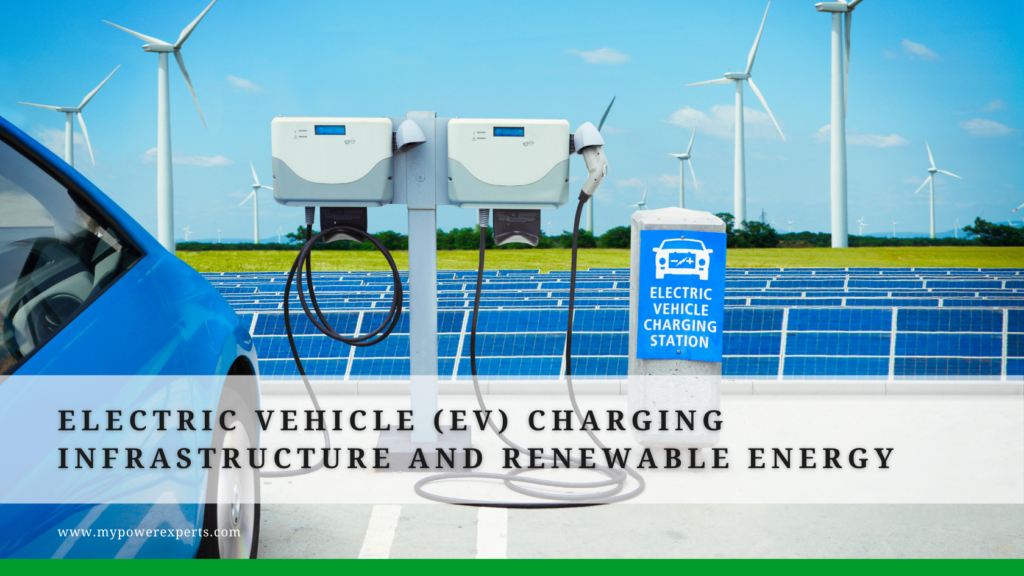
The synergy between electric vehicle (EV) charging infrastructure and renewable energy is a compelling aspect of sustainable transportation and energy systems. Here’s how they complement each other:
Green Charging: Pairing EV charging stations with renewable energy sources such as solar and wind power enables “green charging.” By utilizing clean energy to charge EVs, it reduces carbon emissions associated with transportation, contributing to overall environmental sustainability.
Grid Stability: EV charging can be integrated intelligently with the grid, leveraging renewable energy generation patterns. For instance, EV charging can be incentivized during periods of surplus renewable energy production, helping to stabilize the grid by absorbing excess electricity that might otherwise be wasted.
Demand Response: EV charging infrastructure can participate in demand response programs, where charging rates can be adjusted based on grid conditions and renewable energy availability. This flexibility helps to balance electricity demand and supply, especially as more intermittent renewable sources come online.
Storage Integration: EV batteries can serve as distributed energy storage units. They can store excess renewable energy during times of high generation and discharge it during peak demand periods or when renewable energy generation is low, enhancing grid stability and reducing the need for additional energy storage infrastructure.
Off-Grid Charging: In remote or off-grid areas where access to the traditional power grid is limited, renewable energy-powered EV charging stations offer a sustainable solution. Solar-powered charging stations, for example, can provide reliable charging infrastructure without the need for grid connectivity.
Economic Benefits: Utilizing renewable energy for EV charging can also lead to cost savings in the long term. Solar and wind power have zero fuel costs once the infrastructure is in place, providing stable and predictable electricity prices compared to fossil fuels, which are subject to price fluctuations.
Policy Alignment: Promoting the integration of EV charging with renewable energy aligns with government policies aimed at decarbonizing transportation and transitioning to a cleaner energy mix. Incentivizing the deployment of renewable energy-powered charging infrastructure can accelerate the adoption of both EVs and renewable energy technologies.
Public Perception: Associating EV charging with renewable energy sources enhances the public perception of electric vehicles as truly environmentally friendly transportation options. This perception can further drive consumer adoption of EVs and support for renewable energy initiatives.
The synergy between EV charging infrastructure and renewable energy offers a pathway to a more sustainable, resilient, and efficient energy and transportation system, contributing to global efforts to mitigate climate change and reduce reliance on fossil fuels.